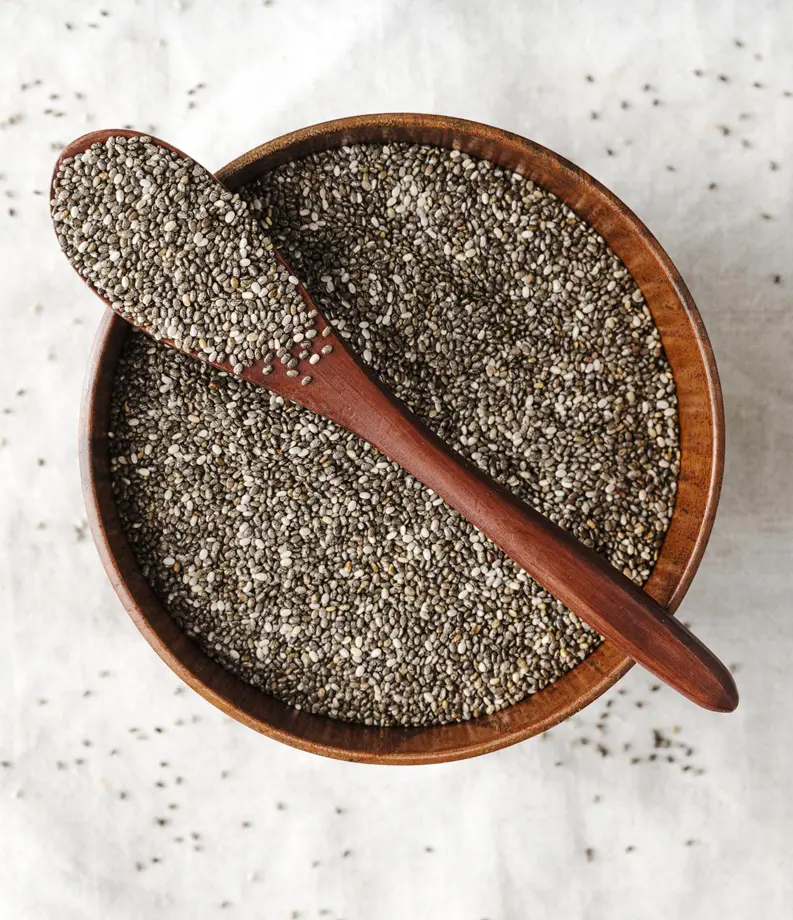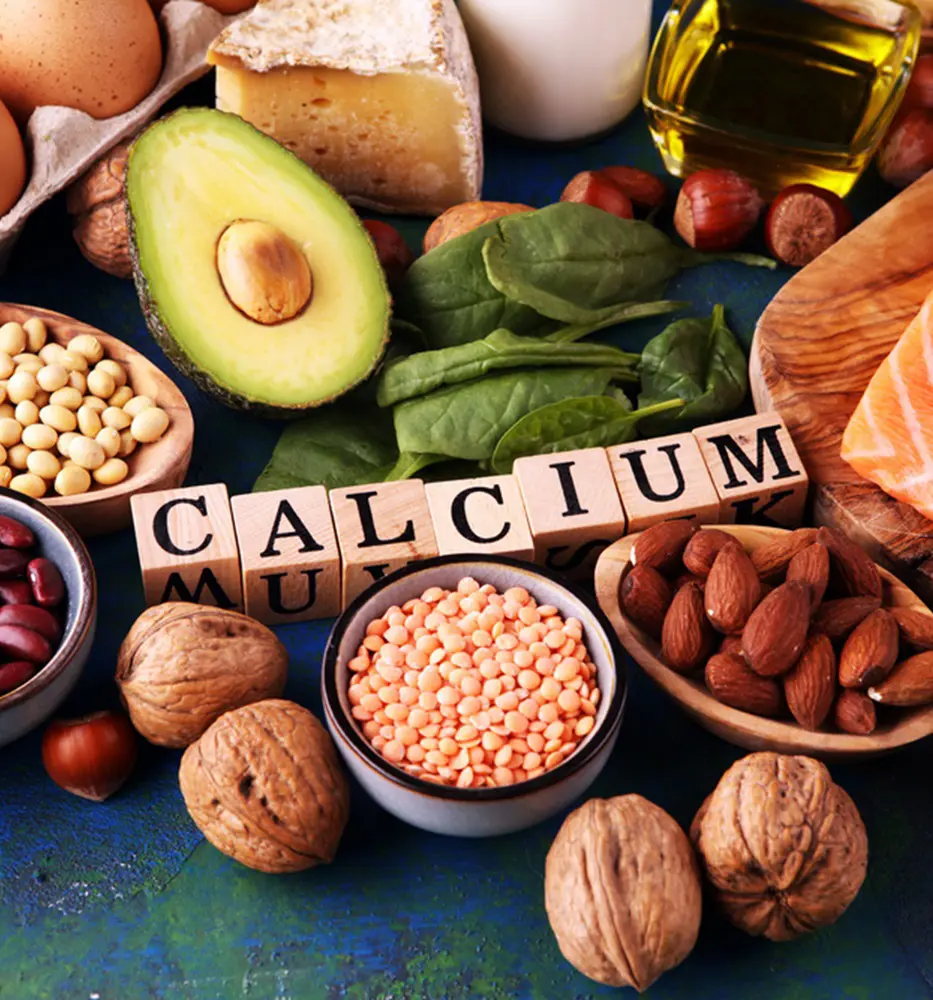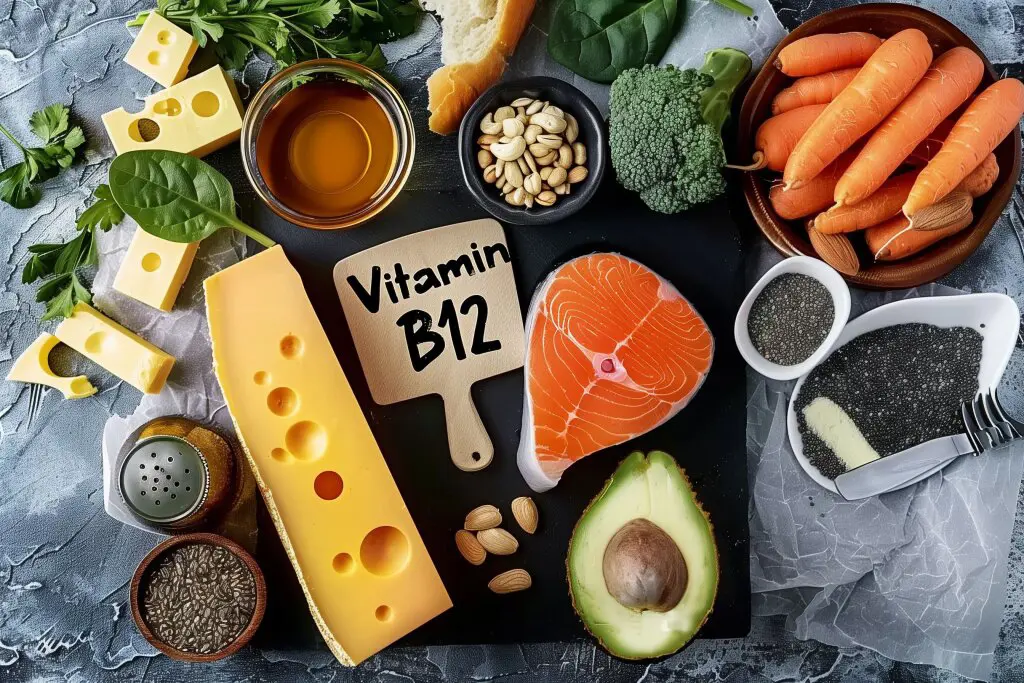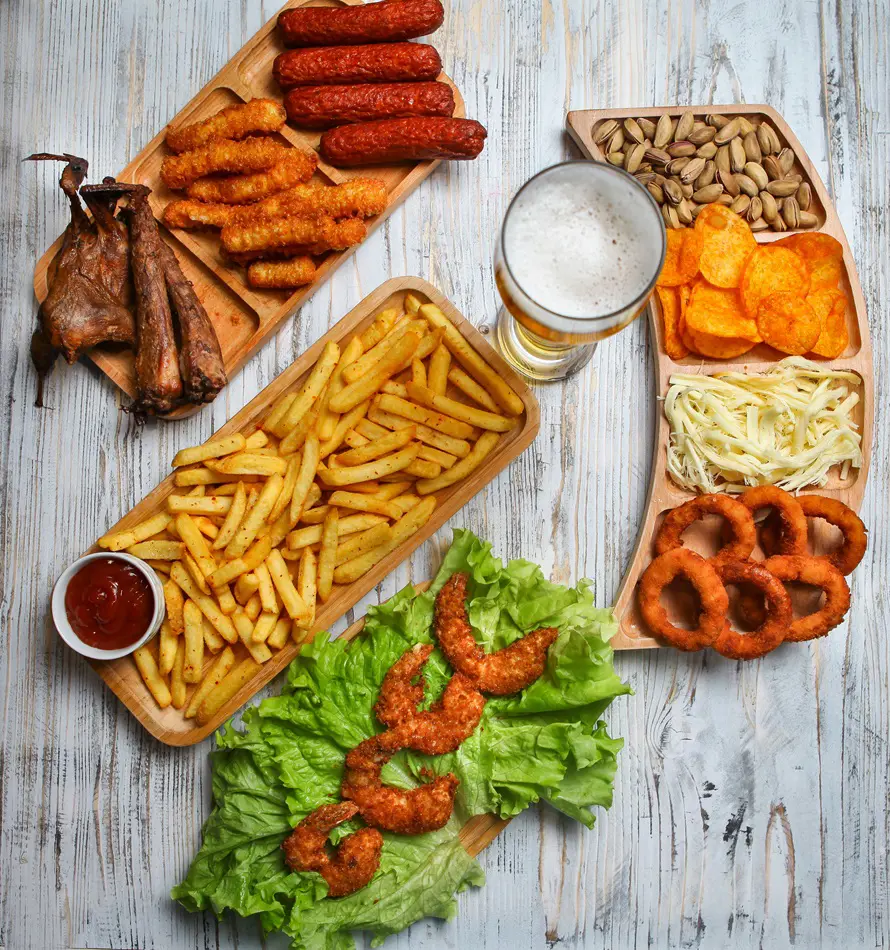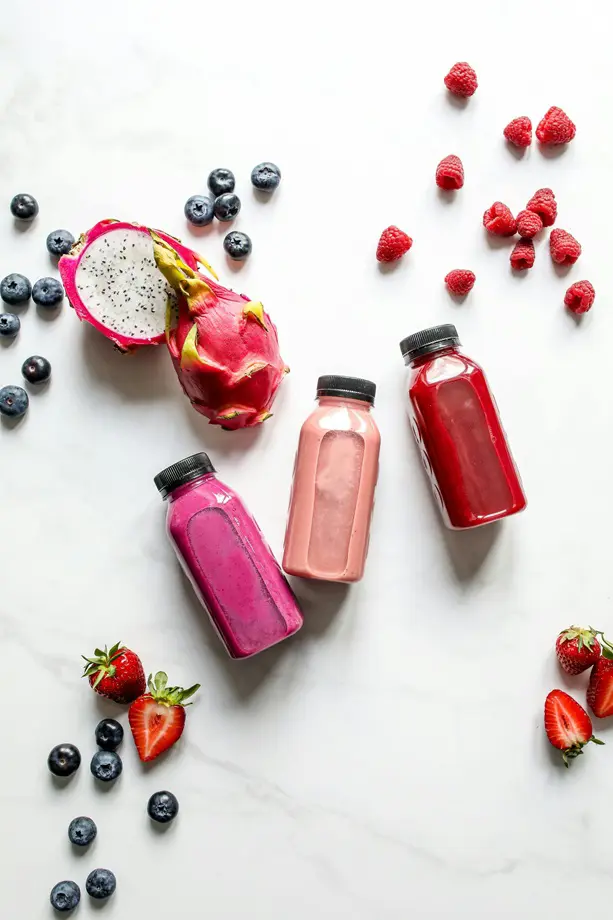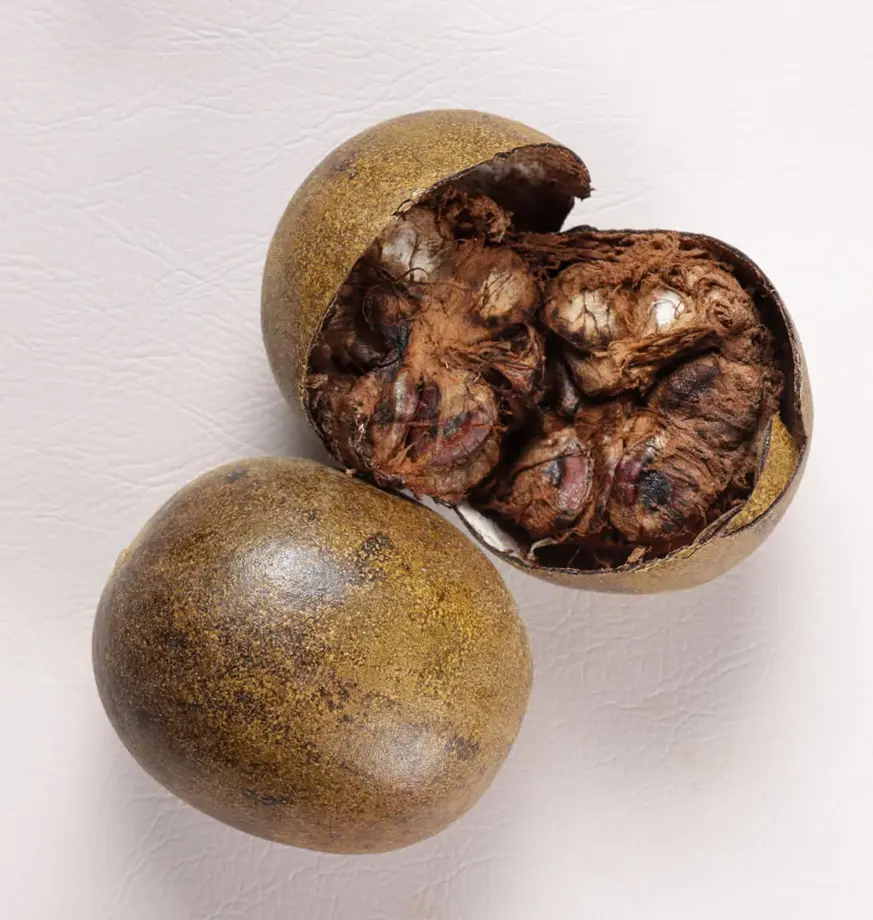Is Cheese Good for Weight Loss? The Ones To Eat And Avoid

This post may contain affiliate links. If you make a purchase through links on our site, we may earn a commission.
Cheese is considered an off-limit for many when it comes to losing weight. But that’s not necessarily true! Rather, cheese is a bit of a mixed bag and can actually have some benefits for weight loss when enjoyed mindfully.
While you decide to incorporate cheese into your diet, make sure to use it as a flavorful addition than making a main event, needed to prevent sabotaging of your weight loss goals. Also, try opting for lower-fat varieties to balance things out.
What Is Cheese Made Of?
Cheese is a calorie- and nutrient-dense food. It is almost 25-30% fats, 25-30% protein and remaining water and micronutrients. The high protein content and high fat, particularly the healthy ones, are what make cheese helpful in maintaining a healthy weight.
Made from milk, cheese is also rich in micronutrients like calcium, other minerals and vitamins. All these essential nutrients present in cheese also play an important role in supporting the weight loss journey.
How Cheese Helps In Weight Loss?

When chosen wisely, many cheeses can make an important addition to weight loss. The different ways cheese works in weight loss include:
High Protein Content
The most praised and standout benefit of cheese is its high protein content. A high protein percentage is an essential addition to the meal plan for weight loss as it guarantees to keep you full for longer.
For instance, if you look at the protein content of cottage cheese, it's 13 grams per half a cup. This amount can keep hunger at bay and reduce snacking frequently, a possible cause of gaining weight. The protein content however may not be high in all types of cheese, so it's better to do a little research than jumping to any of them blindly.
Satiating Fat
The universal truth, that cheese contains fat, can not be avoided. And what should not be avoided either is that all fats are not created equal. Some of the healthy fats are known to be good for weight loss.
The fat in cheese falls among the categories that keep you satisfied after eating, which can help you avoid excessive snacking. The fat and protein in cheese altogether make any meal of the day fulfilling.
We recommend you choose cheeses that are lower in fat, like part-skim mozzarella or reduced-fat cheddar. These options can provide the benefits of healthy fats while still fitting into a weight loss plan.
Nutrient Dense
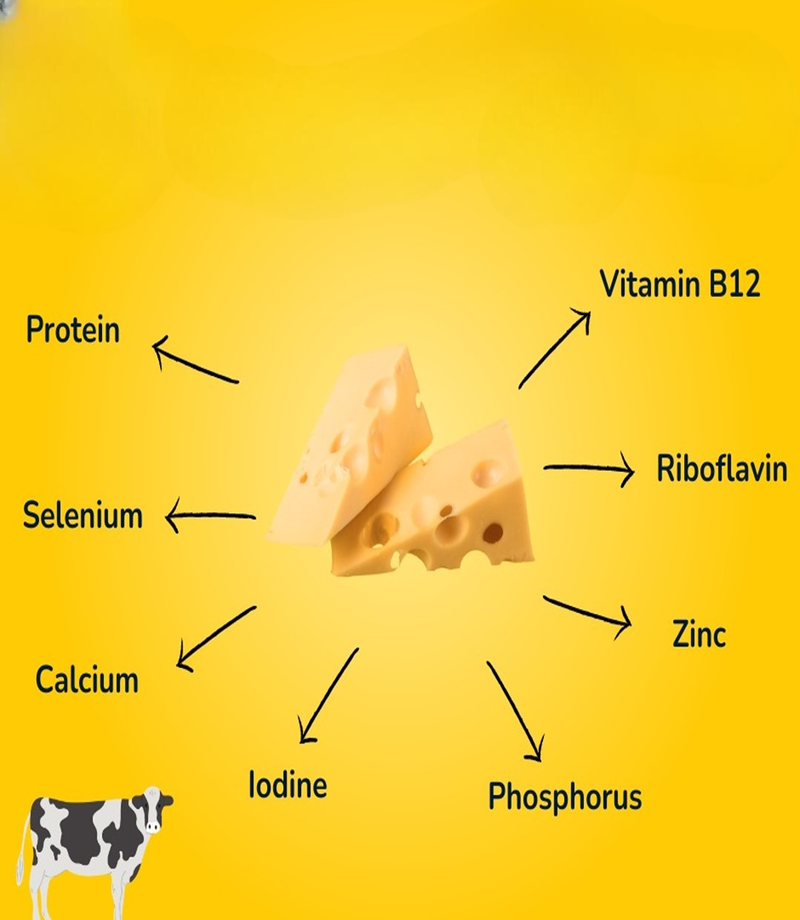
The fat and protein content are important nutrients in cheese. Besides them, calcium, vitamin B12, and phosphorus also make it of high nutritional value. Moreover, as it is made from milk, all the nutrients available in milk can be expected to be present in cheese.
Studies suggest that adequate calcium intake can help with fat loss, particularly in people who are overweight. And other nutrients are also important in body functioning. Hence, cheese is not just another nutrient-less food people choose for weight loss. Rather, they supply the body with essential nutrients while also accompanying weight loss.
Probiotics
Fermented cheeses like feta and gouda contain probiotics. The beneficial bacteria they add to your table can be a boon for gut health. The relevance of improved gut health and weight loss is significant.
These cheeses will help you with improved digestion and nutrient absorption. They make sure you have a properly balanced diet during your entire weight loss journey, keeping you fulfilled with your hands-on healthier meals.
Flavor and Versatility
The more fulfilling your diet is, the more pounds you will be losing! Cheese with its rich flavor can help you achieve this, to make bland and boring dishes more tasty and healthy. Let's be honest, we want to skip the healthy meals otherwise!
Being versatile, you can add cheese to any meal ranging from salads to soups to omelets and whole grain wraps. When you enjoy what you eat, you’re more likely to stick to your healthy eating plan, making it easier to lose weight over time.
Ways To Include Cheese On Weight Loss Diet
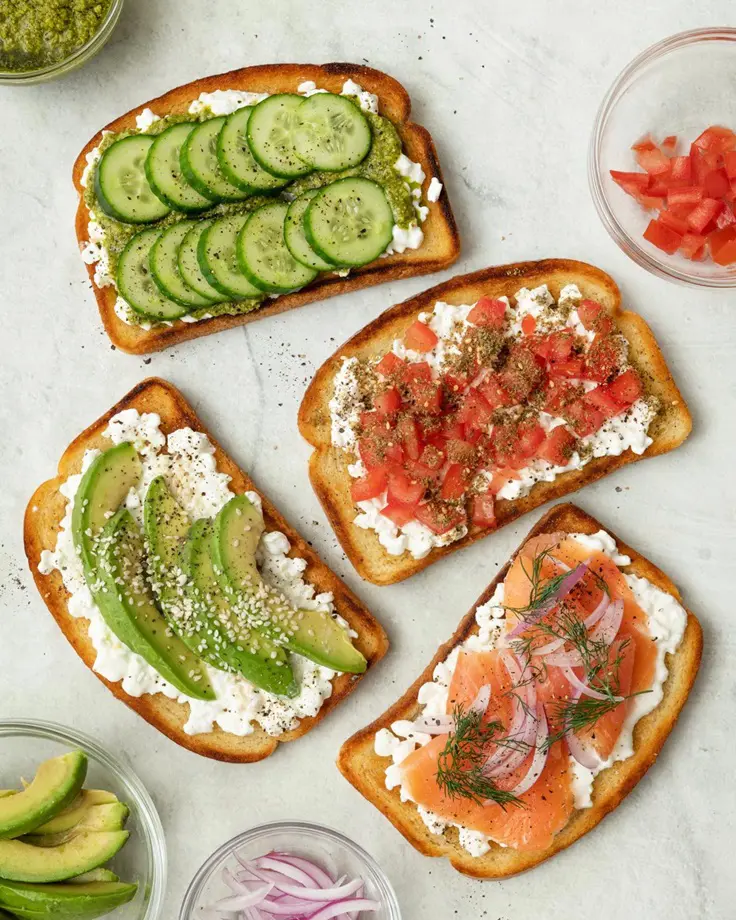
1) Snack Smart with Cheese: Being rich and flavorful, cheese can help us get over our temptations. Pair a small serving of cheese—like string cheese or a few slices of low-fat cheese—with whole-grain crackers or fresh fruit for snacking. Make sure you are preparing the snack with whole ingredients, so you don't have to miss on important nutrients like fiber.
Preparing these snacks can prevent mindless munching later on by keeping you full for a long. For an extra weight loss boost, add some sliced veggies like cucumber or bell peppers.
2) Add Cheese to Salads: Salads can be made enjoyable by adding cheese. Crumbled feta or goat cheese can make any salad delightful and their creaminess and tang will surely make your greens more appealing.
To keep things light, aim for a serving size of about one ounce. Except for low-calorie vegetables, add lean proteins like grilled chicken or chickpeas to keep you full and satisfied.
3) Dishes with Cheese: Make dishes you have scheduled on your weight loss diet paired with cheeses. For instance, try making a vegetable casserole with a light layer of cheese on top. Use cauliflower or zucchini as a base, and add a sprinkle of low-fat mozzarella before baking.
These ways can be great to make every bite burst with flavor without piling on calories.
4) Cheese for Breakfast: Starting your day with a cheese boost will provide you a great beginning for the day in every aspect, nutrition-, flavor- and calorie-wise. Just add some cottage cheese to your morning weight loss smoothie for a protein boost, or top your whole-grain toast with avocado and a sprinkle of feta, the recipes are never-ending.
You could also whip up an omelet loaded with vegetables and a bit of cheese for a filling start to your day. All these recipes will keep you energized and satisfied throughout the morning and will provide a kickstart to your metabolism.
Limitations

Cheese should be added to a weight loss diet keeping a few limitations in mind. First, cheese packs a large amount of calories in a small volume. So, while you might be thinking you have consumed very little cheese, calorie-wise, you may not be doing justice to your weight loss journey.
Besides being mindful of the portion sizes you are consuming, you should also take high cheese fat percentage into account. If you won't be able to balance the other fat sources then it may lead to increased calorie intake. In meals you are incorporating cheese, try to minimize the use of other high-fat-containing foods.
Monitoring sodium intake is another aspect. Cheese also contains a significant amount of sodium which has water retention properties, leading to bloating, and not aligning well with the weight loss goal. So, balancing sodium levels in cheese-containing meals is equally crucial.
We recommend you not to avoid other important food sources in order to balance the calories. Make sure you get all the nutrients without overemphasizing cheese and putting a good focus on a variety of vegetables, fruits, whole grains, and lean proteins.
What Type Of Cheese Works The Best?
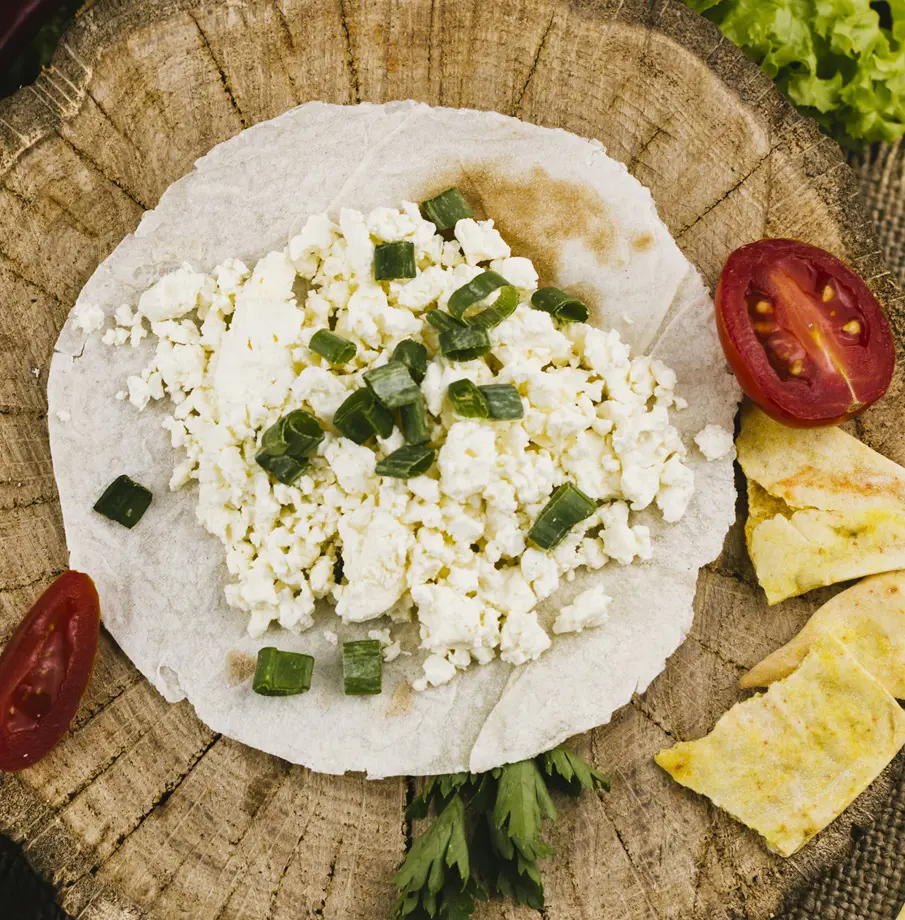
Not all cheeses are for weight loss. Before deciding on whether they are weight loss-friendly or not, it's important to watch out for calorie content, fat levels and protein they contain. Some smart choices, based on all these factors, are listed below:
1) Cottage Cheese
Cottage cheese is recommended to people on a weight loss journey as it is relatively low in fat and high in protein than other cheeses. This content is what makes them a top option for satiety checks hence preventing people from eating more.
Except for the fat and protein, the calorie content of cottage cheese is also low, which is about 70 to 90 calories per 100 grams. The range depends on the fat content, for lower value you can rely on the nonfat ones. The low-calorie makes it a proper option for those who are in a calorie deficit for weight loss.
Cottage cheese is nutritious and a healthy option to lose weight as it helps in the retention of the muscles. This means that, unlike other low-calorie weight loss options that go low in essential nutrients, the high protein content can keep the muscle mass preserved. The average protein content in cottage cheese is about 11 grams per 100 grams.
2) Feta Cheese
Feta cheese has also been loved as a weight-loss cheese by many. Particularly, a serving of the low-fat version contains only around 75 calories. The taste being on the tangier side, makes it less addicting than the ones that are on the creamier side.
So while you include feta in the meals, you are satisfying your cravings without a need for more. It can make the best additions to foods like salads, wraps, and Mediterranean dishes.
Besides the nutritional content, feta cheese also acts like probiotics. This is mainly due to the production process that includes fermentation. Feta hence can support the gut flora, which will make sure the digestion is working properly, directly linked to weight management.
3) Parmesan Cheese

Parmesan has been used for a long in various dishes, and just a sprinkle of it can turn the taste of dishes awesome. All parmesan lovers should be happy knowing that they don't have to escape on their favorite while they tend to lose weight.
An oz. of parmesan cheese contains about 122 calories, which can be considered moderate. Besides being rich in flavor, parmesan is also rich in protein and calcium. This rich nutrient content also makes it a suitable choice for weight loss. The best way to add this cheese to the diet, to not overeat it, is to look for a grated or shredded option.
4) Other Cheese
Except above-mentioned ones, goat cheese can also make a suitable option for weight loss. Goat cheese is lower in fat and calories compared to many cow’s milk cheeses. This makes it a proper tasty option for those watching their weight.
Though not made from cow milk, they don't compromise on the flavor. Tangy and creamy, they work equally well on salads and spreads as other cheeses do. Additionally, goat cheese is easier to digest for some people, making it a preferable option for those with digestive issues while consuming other types of cheese.
Which Ones Should Be Avoided?
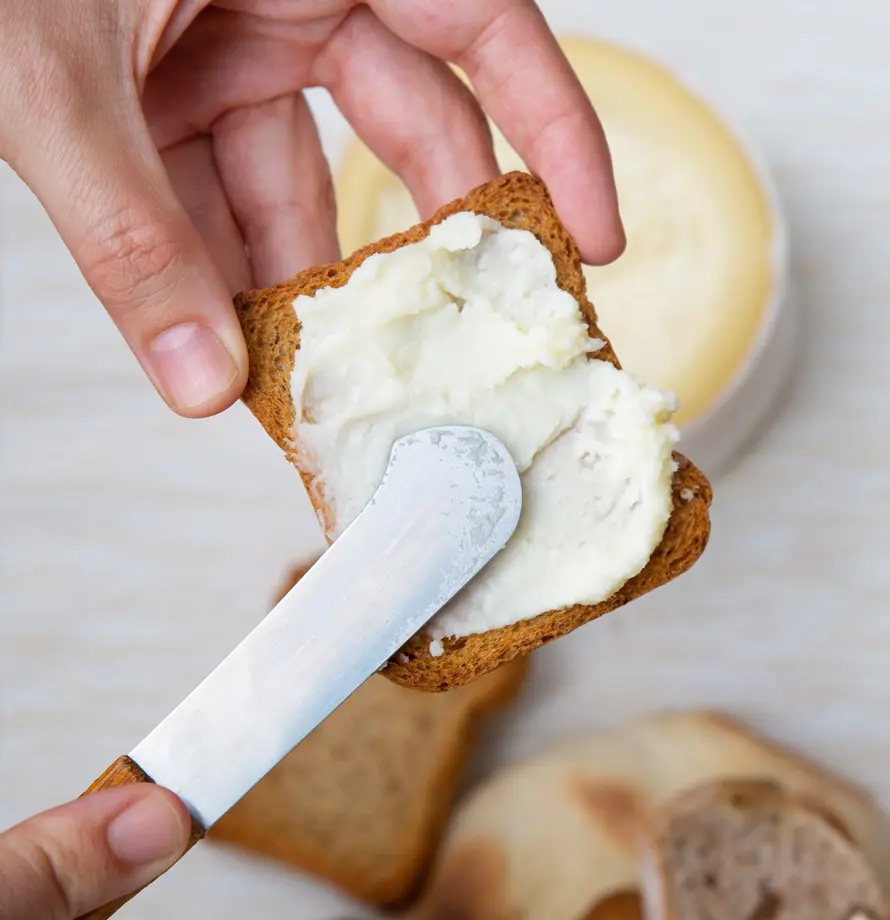
Not all cheeses are created equal when it comes to losing weight. Some cheese can be higher in calories and fat, and hence can derail your weight loss. Some cheeses you might want to limit or avoid altogether are listed below:
1) Cream Cheese
Cream cheese is a staple for spreads and dips today, but if you look at its calories and fat you might take some steps backward to secure weight loss. Just one ounce of cream cheese contains about 100 calories and around 10 grams of fat, with only 2 grams of protein.
The significant amount of calories for a small serving is concerning and what's even more frightening is the addicting flavors the cheese possesses. Without your knowing, cream cheese can add up quickly and make a blunder if you’re not careful.
2) Processed Cheese
Not a bit of processed cheese is not recommended for weight loss. This is because of the low nutritional values the processing part imparts to the resulting product.
If you look at the calories, you won't be impressed either. One serving can easily exceed 100 calories and fillers and containers present can make it even less tempting for weight loss candidates. Basically, it's like one of the junk that may not be a good add-on to your diet.
3) Other Cheeses
Cheddar cheese and blue cheese are other cheeses that come with a hefty calorie count. One ounce of cheddar has around 110 calories and 9 grams of fat while that of blue cheese has about 100 calories and 8 grams of fat, making them a less-recommended choice.
Being rich and flavorful, you may easily consume them more than the intended use. Another cheese, the American cheese should also be avoided during weight loss as just a slice of it packs about 70 calories and 4.5 grams of fat. If you are a cheese lover and can not even think of going without cheese, it's better to opt for the ones we have listed above.
Some Tips

To make cheese a part of your weight loss plan without feeling deprived, follow the following tips:
- Choose Lower-Fat Options: Opt for cheeses that are lower in fat to get the flavor but skip extra calories. Part-skim mozzarella, feta, or cottage cheese are the best ones to consider.
- Watch Your Portions: Cheese is a calorie-dense food. So be mindful of serving sizes and for the best results, stick to about one ounce or a small handful, and remember that a little goes a long way in terms of flavor!
- Use Strong-Flavored Cheeses: Choose cheeses with bold flavors so you can enjoy cheesy goodness with just a little use. Parmesan or aged cheddar falls best in this category.
- Avoid Additives: If the label contains additives or preservatives somewhere, stay away from it. Go for natural cheeses as they are more nutritious.
- Experiment with Cheese in Cooking: Get creative! Try mixing cottage cheese into a smoothie for creaminess, or add a sprinkle of goat cheese to roasted vegetables for the best flavors.
Recent posts
Nutrition
Nutrition
16 Benefits Of Coriander That Will Surprise You
Abundant in nutrients and antioxidants, coriander is an annual herb with a characteristic aroma that is extensively used around the world. Both coriander leaves (also called cilantro) and seeds are used in various cuisines around the world. Known fo...
Nutrition
Chia Seeds Benefits: 15 Reasons To Eat These Tiny Seeds
Chia seeds are tiny edible seeds obtained from the plant known as "Salvia hispanica", belonging to the mint family. Oval, gray, and filled with black and white spots, these small seeds are highly valued for their abundant nutrients and health be...
Nutrition
How Much Calcium Is Actually Needed?
Calcium is a mineral associated with bones, muscles and the nervous system in the body. Current dietary guidelines suggest different Recommended Dietary Allowances(RDAs) for adult males and females, with 1000mg being optimal for males and 1200mg for...
Nutrition
B12 Vitamin Food Sources: A Comprehensive Guide
Vitamin B12, an essential nutrient, plays a crucial role in various bodily functions, including red blood cell production, nerve function, and DNA synthesis. While animal-based foods are the primary sources of B12, certain fortified plant-based foods...
Nutrition
What Foods Are High In Cholesterol? 20 Foods To Avoid
Animal products like meat, eggs, milk, and cheese are sources of dietary cholesterol, unlike plant-based foods. For those aiming to lower their cholesterol intake, it's essential to be mindful of animal-based food choices. While some high-cholesterol...
Nutrition
18 Fat Burning Smoothies For Weight Loss
The weight loss journey is tough if you have to get on the same path day after day, facing cravings and temptations along the way. We suggest you stop making it a monotonous struggle and make it a flavorful adventure instead. One of the easiest and m...

